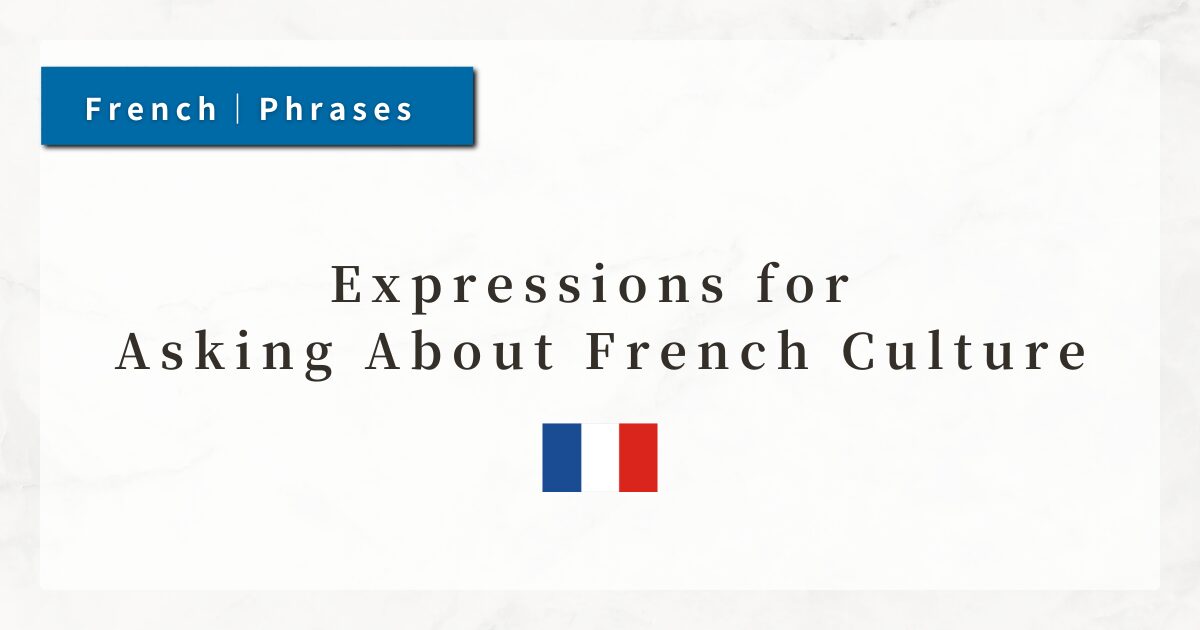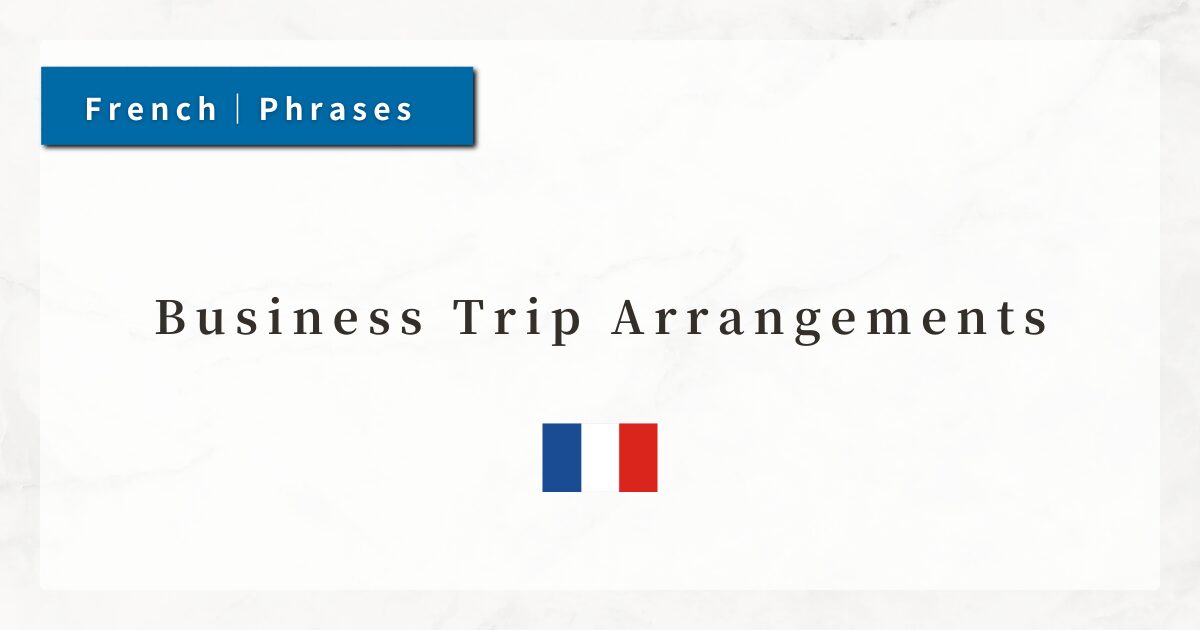#92 Discussing Project Budget | French Business Phrases

When managing a project, the budget is one of the most critical factors. If a project proceeds without a clear understanding of its budget, issues such as cost overruns or schedule delays may occur.
Being able to ask about the budget in French—confirming limits or whether additional costs are expected—will help ensure smooth and respectful communication between both parties.
In this article, I explain useful French expressions for discussing budget matters, along with example dialogues.
Dialogue

J’aimerais discuter du budget prévu pour le projet.
(I would like to discuss the planned budget for the project.)

Oui, bien sûr. Le budget initial est de 50 000 euros.
(Of course. The initial budget is 50,000 euros.)

Est-ce que ce montant est flexible ?
(Is this amount flexible?)

Ça dépend. Nous pouvons envisager une légère augmentation si nécessaire.
(It depends. We can consider a slight increase if necessary.))

Je comprends. Pourrait-on définir un plafond budgétaire ?
(Understood. Could we set a budget ceiling?)

Oui, je pense que 60 000 euros serait le maximum.
(Yes, I think 60,000 euros would be the maximum.)

Parfait. Y a-t-il des coûts supplémentaires que nous devrions prévoir ?
(Perfect. Are there any additional costs we should anticipate?)

Peut-être pour le support technique. Nous vous tiendrons informés.
(Possibly for technical support. We will keep you informed.)
1. Expressing the wish to discuss the budget
Begin by politely saying that you would like to discuss the budget.
- J’aimerais discuter du budget prévu pour le projet.
(I would like to discuss the planned budget for the project.)
Using J’aimerais (I would like to…) communicates a polite request.
The expression “du budget prévu” specifies the “planned or estimated budget,” conveying your intention to confirm expectations in advance.
- Serait-il possible de parler du budget ?
(Would it be possible to discuss the budget?)
Both are polite and appropriate for formal business settings.
2. Confirming the initial budget
Before proceeding, it is necessary to confirm the initial budget.
- Quel est le budget initial ?
(What is the initial budget?)
You may also see the usage:
- Le budget initial est de 50 000 euros.
(The initial budget is 50,000 euros.)
The structure “est de + amount” is used to indicate a monetary amount.
3. Checking whether the budget is flexible
Depending on the situation, you may need to verify whether the budget is adjustable.
- Est-ce que ce montant est flexible ?
(Is this amount flexible?)
Here, montant means “amount,” and flexible means “adjustable.” This phrasing is suitable when you are unsure whether a revision is possible.
- Nous pouvons envisager une légère augmentation si nécessaire.
(We can consider a slight increase if necessary.)
Learning expressions such as envisager (to consider) and augmentation (increase) will be particularly useful in negotiations.
4. Setting a budget cap
Clarifying the maximum budget helps determine the realistic scope of a project.
- Pourrait-on définir un plafond budgétaire ?
(Could we set a budget ceiling?)
Here, plafond means “ceiling/limit,” and budgétaire means “related to budget.”
This is a highly formal expression appropriate when discussing the upper limit of available funds.
5. Confirming potential additional costs
Additional costs often arise during a project. Clarifying them in advance ensures smoother budget management.
- Y a-t-il des coûts supplémentaires que nous devrions prévoir ?
(Are there any additional costs we should anticipate?)
- coûts supplémentaires → additional costs
- prévoir → to anticipate / take into account
If such costs are likely, you can encourage the other side to share them early.
Summary
- J’aimerais discuter du budget.
→ Polite request to discuss the budget - Quel est le budget initial ?
→ Useful when confirming the initial budget - Est-ce que ce montant est flexible ?
→ Used to check flexibility of the budget - Pourrait-on définir un plafond budgétaire ?
→ Used to request setting a budget ceiling - Y a-t-il des coûts supplémentaires ?
→ Basic phrase to confirm additional costs




